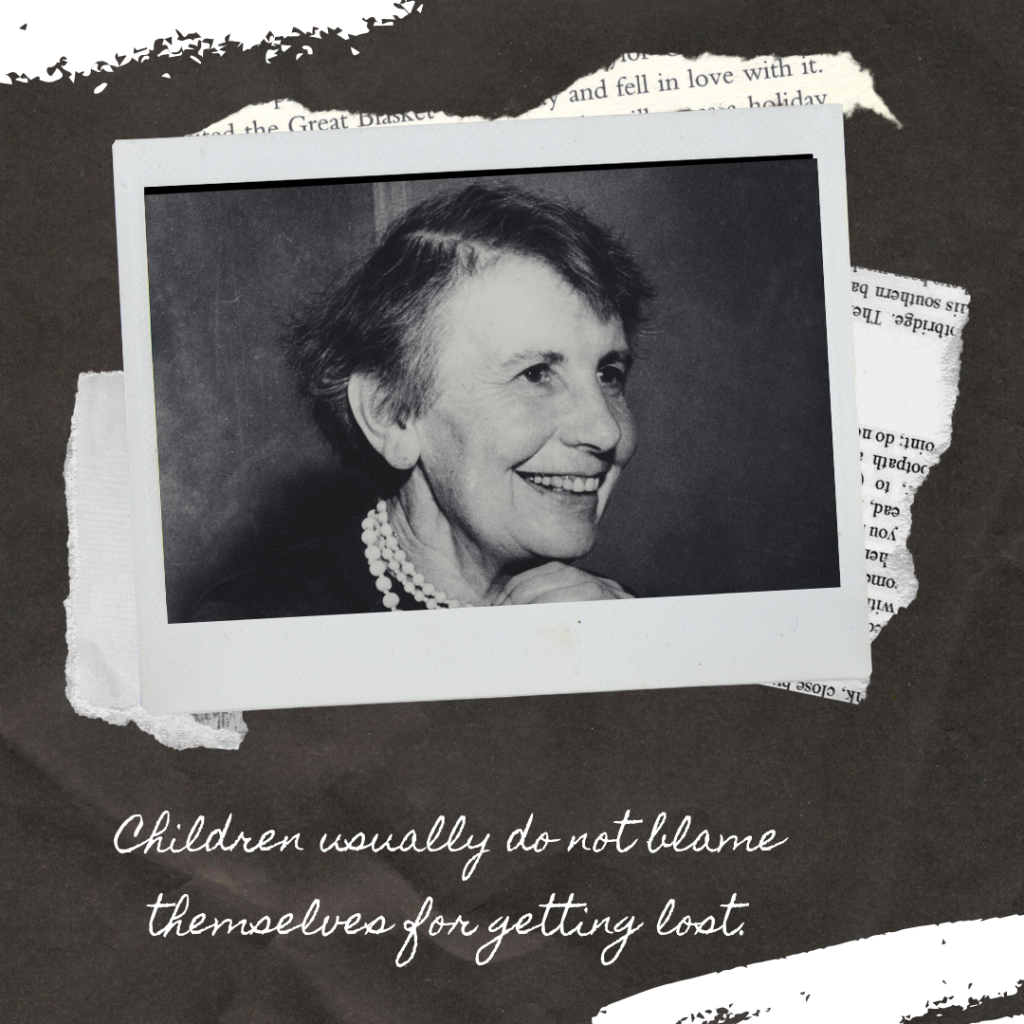
Last month, I introduced you to one of my favourite theorists, Erik Erikson. If you’ll remember, Erikson believed that we all go through ‘psycho-social” stages of life, and at each stage, we are confronted with a challenge. These challenges are meant to help an individual grow autonomously into adults. Life, of course, has other plans for us as you may already know…
Anne Freud, daughter of Sigmund Freud is still to this day considered a groundbreaking child analyst, who coined these everyday terms we use to understand relationships with family, friends, coworkers and even ourselves.
Anna Freud helped us to understand two important factors when viewing a child:
- She helped us see the child as a naturally “free and self-reliant human being.”
- Her own life is the resilient story of one woman’s determination to understand children. She was a refugee from Nazi violence in Vienna and later survived wartime conditions in London, yet she developed schools, daycare programs, and child refugee centres all the while advancing new methods for observing human development. We are still using her treatment models in numerous areas, from child therapy (especially with traumatized children) to clinical training.
In today’s society, much of the problems are focused on the child, instead of taking the road less travelled and taking a look at ourselves (i.e. introspection)… How do we change that?
First and foremost, we are so too hard on ourselves. Every day we ask ourselves things like ‘am I a good person? / am I successful? / Will I be a good enough parent? All valid questions! But we have all been sold an idea on how we should live, rather than living on one’s own accord.
We need to drown out the noise of everyone’s else’s opinion, and instead, we need to look at what does success mean TO YOU? What does “being a good-parent” means IN YOUR EYES? Hear me when I tell you; those bars have been set by the expectations of our world we live in, it’s made-up. The only bar worth setting is one that you are happy with and makes others around you happy too.
Getting back to parenting: take, for example, Anna Freud who realised that children are naturally adept at self-regulation. In other words, she was opposed to the ‘typical artificial laboratory settings’ so she observed them at breakfasts instead. The Jackson Nursery (Freud and Burlingham’s last project before escaping Austria) served a morning meal buffet-style for the kids. At first, the toddlers, who came from Vienna’s poorest families, feasted on everything but they became quite selective after just a couple of days. This demonstrated that most children turn out to be inherently consistent in what they want and what they need. In turn, the need for constant micro-management proved less important than allowing their children to make their own decisions and in turn learn to regulate their behaviour. Secondly, we’ve learnt that we need to be frank and open about our early years if we want to truly connect with kids.
Anna Freud said once said, “all investigators must investigate themselves.” More specifically, parents and teachers need to explore the effects – positive or negative – of their childhood on their adult behaviour.
To conclude, Anna Freud helped us to realise that our children are indeed a manifestation of one or both parents, but you as the parent, you control the outcome of what kind of adult you’d like your child to become. At the end of the day, we all want the best for our kin, but sometimes those skewed models of the world in which we hold dear, are incongruent. We all need to learn to listen and be patient with our loved ones. I must state for the record that I’m not a parent, and in writing this blog, I’m neither trying to dictate that I know the rights from wrongs from parenting. This blog post is written in the hope to create self-awareness in everyday lives with one another, and not just our children.
Take care of yourself,
Liam
Leave a comment